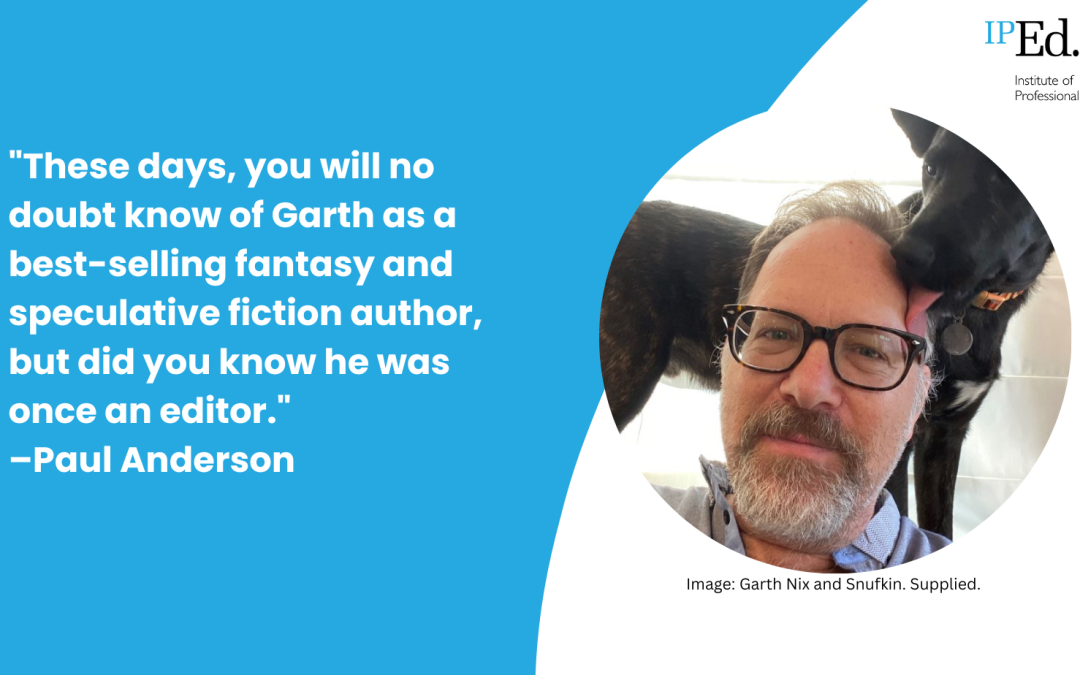By Paul Anderson
Garth Nix tells a good story. On one occasion, he was in a large bookshop in Edinburgh for a promotional event, signing copies of his novel Goldenhand (“on brand” with a gold Sharpie), when he noticed the bookseller assisting him was left-handed. Garth has long been interested in left-handedness. He can still write and draw with his left hand (but was not allowed to do so during his school days) and his son is a southpaw.
“I see you’re left-handed,” Garth said to the staff member, affably making conversation. “Yes, we all are. Everyone in the bookshop is left-handed,” came the reply. Quick as a flash, Garth responded “Oh, you’re the left-handed booksellers of Leith”. Garth thought there had to be a story in that – and the rest is history. He would go on to write the first title in his fantasy thriller series The Left-Handed Booksellers of London, moving the setting to London so he could write about places he knew.
Garth was in conversation via Zoom with Kai Jensen, the EdNSW Presentations Coordinator, in a special curtain-raiser event preceding the EdNSW Annual Branch Meeting on 1 August 2023.
These days, you will no doubt know of Garth as a best-selling fantasy and speculative fiction author, but did you know he was once an editor (as well as a bookseller, book sales rep, and book publicist before that)? Garth knew that he wanted to be a writer from early on but cannily he also knew that he would need a day job.
Garth worked as an editor in various roles for about six years, the last three as a senior editor with Harper Collins. He then moved on to publicity and marketing work in another sector before later returning to publishing as a literary agent. Crucially, Garth was also writing all this time: in fact his “first dozen books” were written while he still had busy day jobs. This arrangement worked for Garth – he wrote “a couple of nights a week and Sunday afternoons” and made the most of these allocated times. Commercial success eventually followed, and Garth was able to achieve his dream of becoming a full-time writer, importantly, keeping a set routine and clear priorities.
Garth shared a few other stories with us and some of his writing practices. He explained how, on the advice of his American editor and publisher at the time, his sequel to Sabriel (originally “one big book”) was split into two books (Lirael and Abhorsen, in what became the start of The Old Kingdom series). Another, somewhat dramatic, story was a cautionary tale for editors making a move from nonfiction to fiction. (A hint as to the moral of the tale: do not edit fiction as if it were nonfiction.)
Typically, Garth will not have a carefully planned outline that he writes to. When first thinking about an idea for a story, he does not always know the final form it will take, be it a short story, novel or screenplay. Instead, he will often write a “proof of concept” piece that may or may not end up in the actual book, but it allows him to work out developmental elements such as tone, characterisation and the intended primary audience.
Thank you, Garth, for being so generous with your time and such an interesting and gracious interviewee.

